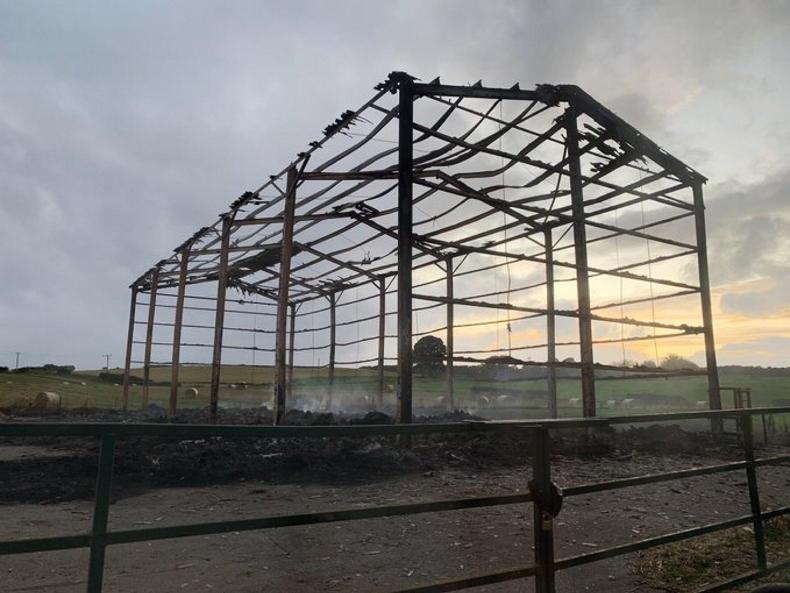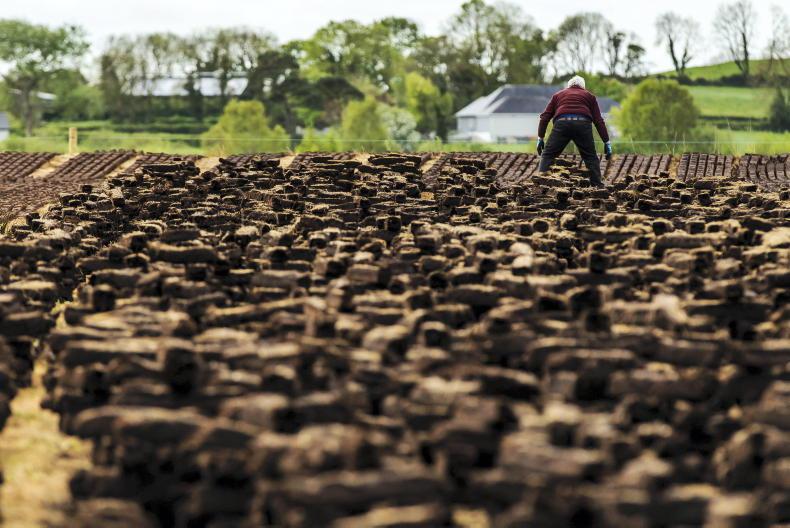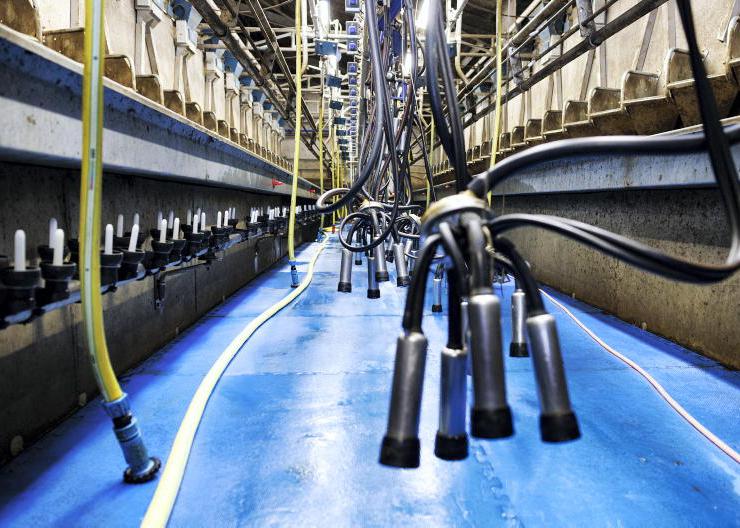For most people, insurance is purchased to protect themselves against the sudden and unforeseen event that will most likely carry a financial cost to repair/replace.
In my role as a public loss assessor, otherwise known as an independent loss assessor, I see the importance of ensuring we are all insuring our properties correctly.
Failing to adequately insure or even failing to insure what is important can lead us to spending money foolishly if the policy will not step in to cover you when you most need it.
As a part-time farmer and full-time loss assessor, I have seen the benefits and downfalls of insurance contracts.
From a farmer’s point of view, I would strongly recommend the following;
Disclose all relevant information at the time of policy purchase. Read and answer all the queries on the proposal form if one is to be signed as these answers will be held against you in the event of a claim.Make sure you set out the correct sums insured for each individual building and, if possible, note them by name so that there is no confusion about what is and what is not covered at the time when you most need it. Ask the insurer how much you should insure your building for. Ask them for a rate per square foot or metre. Ask them if that is for buildings above ground or if it is the same rate for slatted tanks below ground – this is critical.Take photos of your buildings and keep them for when you may need to prove the condition of your insured property – you might need to rely on these in the event of a claim.Understand the insurance policy. Remember, insurance policies are not maintenance contracts. A contract of insurance is there to indemnify you against a noted loss, otherwise known as an insured event or insured peril. These insured events will be clearly noted on your policy but always ask your broker or sales representative to explain your policy in full to you when you purchase same. Always remember that your insurer/broker/sales representatives are all obliged to comply with the Consumer Protection Code as well as Central Bank regulations so they are all obliged to advise you correctly as well as explaining what your policy will cover you for, but often this only happens if you ask the questions.Farm policies are a little different to house policies as they have restricted cover. Not all events that you see covered in your house policy will be covered on your farm policy. Standard farm building policies cover you for the following losses – fire, lightning, explosion and aircraft impact only.
Additional cover for the following can be asked for, albeit at an increased premium – storm, impact, subterranean fire and oil damage.
Similarly, standard farm livestock policies cover you for the following – fire, lightning, explosion, aircraft, impact only. Additional cover for the following must be asked for – fatal accident as a result of electrocution, straying and in transit mortality cover.
Farm insurers are limited enough and are mostly restricted to the following companies: Aviva, AXA, FBD and Zurich. Some brokerage offices are attempting to seek alternative non-national insurers but the market is limited.
All insurers write their policies somewhat differently, so it is crucial to ask the right questions and take professional advice.
I believe it is best to get your broker or insurers’ representative attend your farm and walk through the yard to allow them to offer you the best advice.
You are not tied to one insurer so it is good to price around as insurance premiums are quite expensive.
Pitfalls of
inadequate insurance
Inadequate insurance can lead to deductions or declinatures (under-insurance penalties).
All insurers have introduced a clause known as “average” over the past few years. This is a clause that allows the insurer to penalise you if you do not have your sums adequately insured at the time of a loss.
While you may think you will rebuild a farm building for small money following a catastrophic event, your insurer often thinks differently. Insurers will rarely say what amount you should insure your building for when you are purchasing your policy over the phone, but they will be very quick to advise the building was inadequately insured when you have a loss.
This is particularly the case if the sum insured does not meet with their expectation or their suggested rate for rebuilding. In such instances they will firstly adjust your claim (generally downwards) and then reduce that reinstatement amount further by applying the percentage underinsurance penalty to your claim.
Example
A hayshed is insured for €20,000 and a storm causes €10,000 worth of damage. The insurer subsequently advises that the hayshed should have been insured for €40,000.
Because the sum insured is 50% less than what it deems adequate, the insurance company will then reduce the claim from €10,000 (presuming it accepts this as a fair and reasonable cost) to €5,000 by applying this clause as you were essentially only 50% insured.
Most Insurers only cover buildings above ground level, so it is very important to ask them about insuring your slatted tank below ground.Answer questions on the proposal form honestly and fully as any errors/omissions may result in your claim being declined or even your policy being cancelled. Farmers should be reminded that it is almost impossible to purchase an insurance policy if you have had a policy cancelled, for whatever reason.Ensure you have every aspect of your business covered. All too often we see policies that the insured may have forgotten to ask for livestock cover or storm cover or revenue audit cover or business interruption cover. Ask the right questions but even better ask your broker or insurer sales representative to call and offer you their professional advice.Don’t forget that your farm machinery, utensils and equipment should also be insured if they are of value to you. When insuring these items always ask what conditions apply to ensuring you are covered in the event of a fire or theft loss. As previously mentioned, we purchase insurance to protect our assets in the event of a claim. Your insurer will always appoint its loss adjuster to protect its interests so unless you are an experienced claims professional you should consider appointing your own loss assessor to protect yours. Would you go to court without your solicitor? Insurance company adjusters are there to adjust a claim and I have yet to see them adjust the claim upwards. If you have a claim or have a query relating to your policy you should contact a loss assessor to offer you the best advice.
Finally, use your broker or insurer representative to assist you in insuring your property/asset adequately. They have a legal obligation to offer you advice that is in your best interests.
For most people, insurance is a once-off annual event where they make a payment to an insurance company.
It is not until something goes wrong that the finer details of their insurance cover is investigated.
To protect both parties, insurance is a highly regulated legal contract that has evolved over centuries. There are five basic principles of insurance as follows:
Utmost good faith.Indemnity.Subrogation.Insurable interest.Proximate cause.*Mike O’Sullivan is a loss assesor and partner in Murphy O’Sullivan Claims Specialists, with offices in Kanturk, Mallow and Waterford.
For most people, insurance is purchased to protect themselves against the sudden and unforeseen event that will most likely carry a financial cost to repair/replace.
In my role as a public loss assessor, otherwise known as an independent loss assessor, I see the importance of ensuring we are all insuring our properties correctly.
Failing to adequately insure or even failing to insure what is important can lead us to spending money foolishly if the policy will not step in to cover you when you most need it.
As a part-time farmer and full-time loss assessor, I have seen the benefits and downfalls of insurance contracts.
From a farmer’s point of view, I would strongly recommend the following;
Disclose all relevant information at the time of policy purchase. Read and answer all the queries on the proposal form if one is to be signed as these answers will be held against you in the event of a claim.Make sure you set out the correct sums insured for each individual building and, if possible, note them by name so that there is no confusion about what is and what is not covered at the time when you most need it. Ask the insurer how much you should insure your building for. Ask them for a rate per square foot or metre. Ask them if that is for buildings above ground or if it is the same rate for slatted tanks below ground – this is critical.Take photos of your buildings and keep them for when you may need to prove the condition of your insured property – you might need to rely on these in the event of a claim.Understand the insurance policy. Remember, insurance policies are not maintenance contracts. A contract of insurance is there to indemnify you against a noted loss, otherwise known as an insured event or insured peril. These insured events will be clearly noted on your policy but always ask your broker or sales representative to explain your policy in full to you when you purchase same. Always remember that your insurer/broker/sales representatives are all obliged to comply with the Consumer Protection Code as well as Central Bank regulations so they are all obliged to advise you correctly as well as explaining what your policy will cover you for, but often this only happens if you ask the questions.Farm policies are a little different to house policies as they have restricted cover. Not all events that you see covered in your house policy will be covered on your farm policy. Standard farm building policies cover you for the following losses – fire, lightning, explosion and aircraft impact only.
Additional cover for the following can be asked for, albeit at an increased premium – storm, impact, subterranean fire and oil damage.
Similarly, standard farm livestock policies cover you for the following – fire, lightning, explosion, aircraft, impact only. Additional cover for the following must be asked for – fatal accident as a result of electrocution, straying and in transit mortality cover.
Farm insurers are limited enough and are mostly restricted to the following companies: Aviva, AXA, FBD and Zurich. Some brokerage offices are attempting to seek alternative non-national insurers but the market is limited.
All insurers write their policies somewhat differently, so it is crucial to ask the right questions and take professional advice.
I believe it is best to get your broker or insurers’ representative attend your farm and walk through the yard to allow them to offer you the best advice.
You are not tied to one insurer so it is good to price around as insurance premiums are quite expensive.
Pitfalls of
inadequate insurance
Inadequate insurance can lead to deductions or declinatures (under-insurance penalties).
All insurers have introduced a clause known as “average” over the past few years. This is a clause that allows the insurer to penalise you if you do not have your sums adequately insured at the time of a loss.
While you may think you will rebuild a farm building for small money following a catastrophic event, your insurer often thinks differently. Insurers will rarely say what amount you should insure your building for when you are purchasing your policy over the phone, but they will be very quick to advise the building was inadequately insured when you have a loss.
This is particularly the case if the sum insured does not meet with their expectation or their suggested rate for rebuilding. In such instances they will firstly adjust your claim (generally downwards) and then reduce that reinstatement amount further by applying the percentage underinsurance penalty to your claim.
Example
A hayshed is insured for €20,000 and a storm causes €10,000 worth of damage. The insurer subsequently advises that the hayshed should have been insured for €40,000.
Because the sum insured is 50% less than what it deems adequate, the insurance company will then reduce the claim from €10,000 (presuming it accepts this as a fair and reasonable cost) to €5,000 by applying this clause as you were essentially only 50% insured.
Most Insurers only cover buildings above ground level, so it is very important to ask them about insuring your slatted tank below ground.Answer questions on the proposal form honestly and fully as any errors/omissions may result in your claim being declined or even your policy being cancelled. Farmers should be reminded that it is almost impossible to purchase an insurance policy if you have had a policy cancelled, for whatever reason.Ensure you have every aspect of your business covered. All too often we see policies that the insured may have forgotten to ask for livestock cover or storm cover or revenue audit cover or business interruption cover. Ask the right questions but even better ask your broker or insurer sales representative to call and offer you their professional advice.Don’t forget that your farm machinery, utensils and equipment should also be insured if they are of value to you. When insuring these items always ask what conditions apply to ensuring you are covered in the event of a fire or theft loss. As previously mentioned, we purchase insurance to protect our assets in the event of a claim. Your insurer will always appoint its loss adjuster to protect its interests so unless you are an experienced claims professional you should consider appointing your own loss assessor to protect yours. Would you go to court without your solicitor? Insurance company adjusters are there to adjust a claim and I have yet to see them adjust the claim upwards. If you have a claim or have a query relating to your policy you should contact a loss assessor to offer you the best advice.
Finally, use your broker or insurer representative to assist you in insuring your property/asset adequately. They have a legal obligation to offer you advice that is in your best interests.
For most people, insurance is a once-off annual event where they make a payment to an insurance company.
It is not until something goes wrong that the finer details of their insurance cover is investigated.
To protect both parties, insurance is a highly regulated legal contract that has evolved over centuries. There are five basic principles of insurance as follows:
Utmost good faith.Indemnity.Subrogation.Insurable interest.Proximate cause.*Mike O’Sullivan is a loss assesor and partner in Murphy O’Sullivan Claims Specialists, with offices in Kanturk, Mallow and Waterford.









SHARING OPTIONS